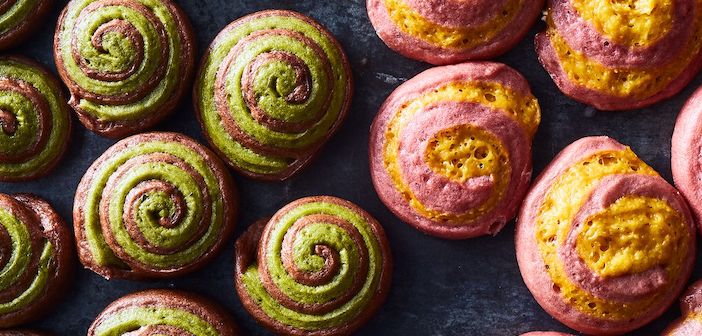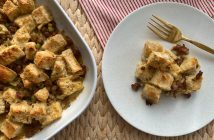Better known as Chinese steamed buns, mantou is a staple food in the Chinese diet. Originating from a folk tale over 2,000 years ago, mantou has evolved from simple, plain buns to a wide range of shapes, sizes, and colors. Initially, it was popular mainly in northern China because rice is seldom grown there so people had to find alternative foods. Now, it graces the menus of every city, every town, and every village in China.
Mantou in its most basic form is white and round, often considered part of the main course. As a dessert, smaller deep-fried versions are dipped in sweetened milk. Nowadays, mantou is a cross between food and art, with chefs racing to find a new, creative way of styling the dough. My household was first introduced to this innovation on Valentine’s Day this year when my mom decided to steam Mantou roses. Since then, we’ve been working our way through mantou crabs, porcupines, frogs, and many more.
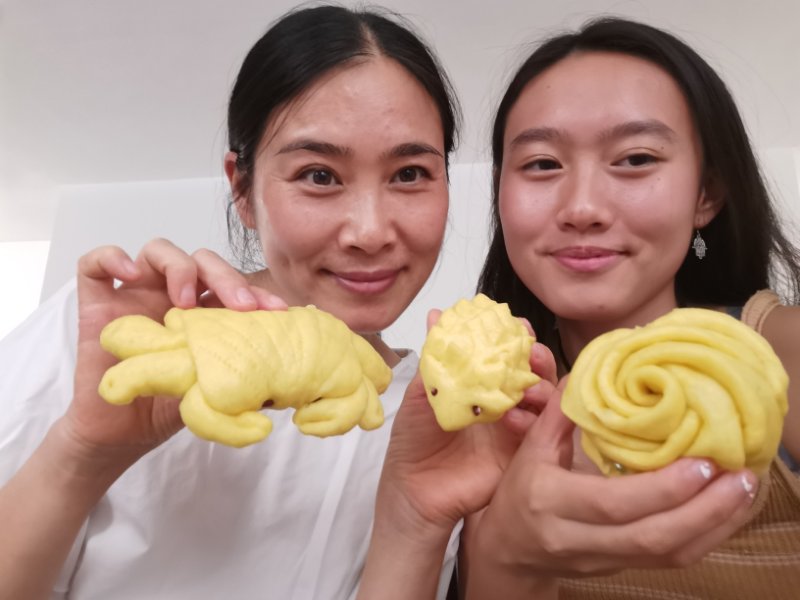
Qinglan and her mom with their mantou creations
Ingredients (makes 6 medium or 3 large mantou)
- 250g all-purpose/plain flour
- 1 tsp dried active yeast
- 130ml lukewarm water
- 1 tbsp sugar, or to taste (optional)
- Food dye or raw ingredients for coloring (yellow mantou can be made from steamed pumpkin, green from crushed spinach, pink from dragon fruit, and purple from purple sweet potato.)
Method
- Decide on a color for your mantou; In my case, I’ll be working with yellow, made from 1 small pumpkin.
- Start by washing the pumpkin, then slicing it, and finally steaming it.
- Put the flour in a clean metal pot. Squash the steamed pumpkin pieces and blend them in with the flour. It’s optional to add white sugar at this stage depending on your preference.
- Dissolve the instant dry yeast in the water. I suggest the brand Angel (安琪 ān qí).
- Once it’s fully dissolved, pour the liquid into the flour and pumpkin. Stir the mixture thoroughly until thoroughly blended, and cover the pot.
- Allow the dough rise for two hours.
- Shape the mantou into your desired design, below I show how to make a mantou rose, crab, and porcupine.
- Place your creations in a steam pot and allow them to rise for another 10 minutes before turning on the stove.
- Steam for 15 minutes, turn off the heat and wait another 10 minutes before removing the mantou.
- Enjoy your very own colorful, creative mantou collection.
Mantou Rose
- When the two hours are up, retrieve the dough and a cutting board, and break off a handful of dough.
- Using your hands, sculpt that piece of dough into a long strip.
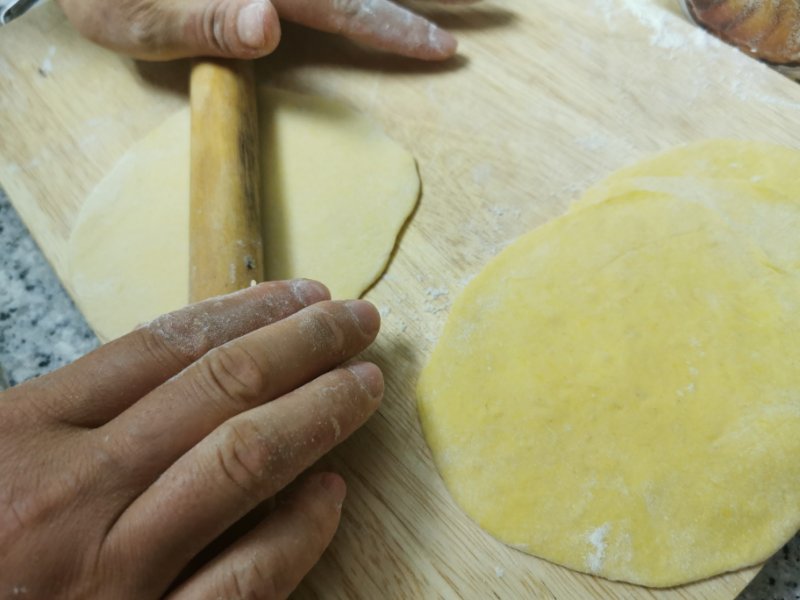
- Now split the strip into six equal pieces with a knife and use a rolling pin to knead each piece into a flat circle, just like with dumpling wraps.
- Layer the six circles on top of one another so that they overlap.

- Take a chopstick and press it down along the center of the stack’s length. Roll the stack up, along its length, and cut it with a knife according to the mark previously made by the chopstick.
- This produces two separate roses.
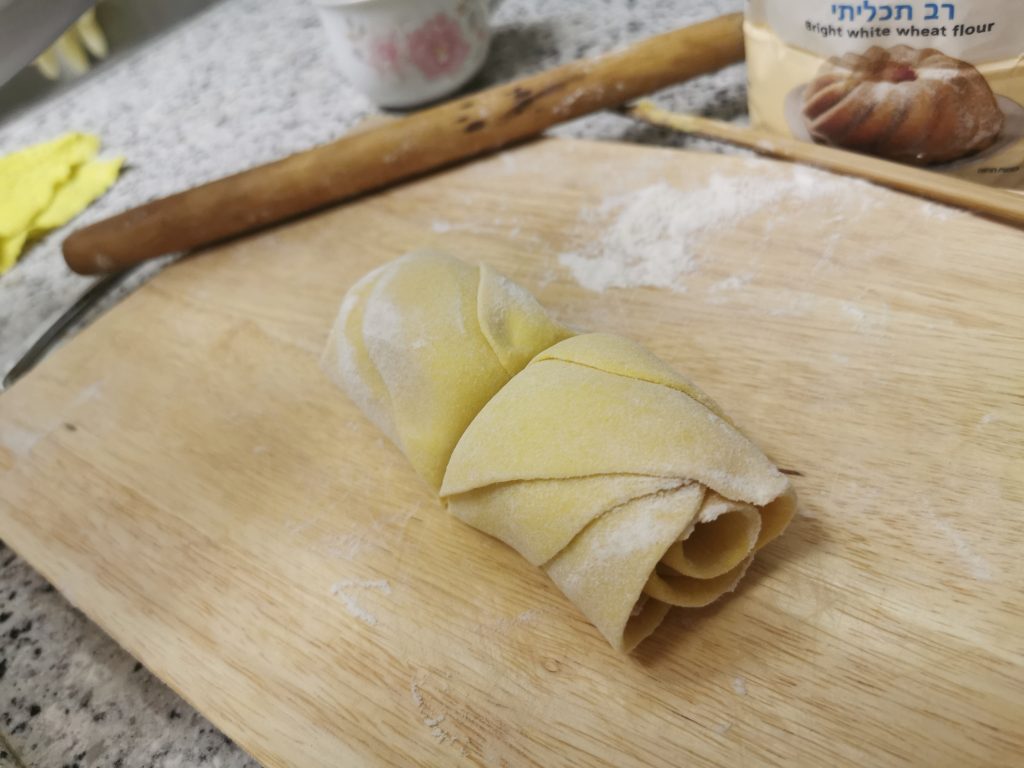
- Adjust the petals of the roses to your liking by pulling them out and opening them up. Then, place the two finished products in a steam pot.

Mantou Crab
- Break off another handful of dough from the metal pot and split that into five even pieces with a knife.
- Take out a rolling pin and knead one of the pieces into a flat oval. This will serve as the crab’s body.
- With the remaining four pieces, sculpt them into thin, long strips of equal length for the crab’s legs. Lay the legs horizontally across the crab body.

- Fold the two sides of the oval over the strips and make sure they stick firmly. Flip the whole structure upside-down and insert two beans, (both red beans or green beans work great) into the edge of the oval to resemble eyes. You may need a small knife to properly embed the beans.

- Lastly, take a comb and press it into the crab’s back repeatedly to form a pattern. Place the finished product in the steam pot and move onto the final design.
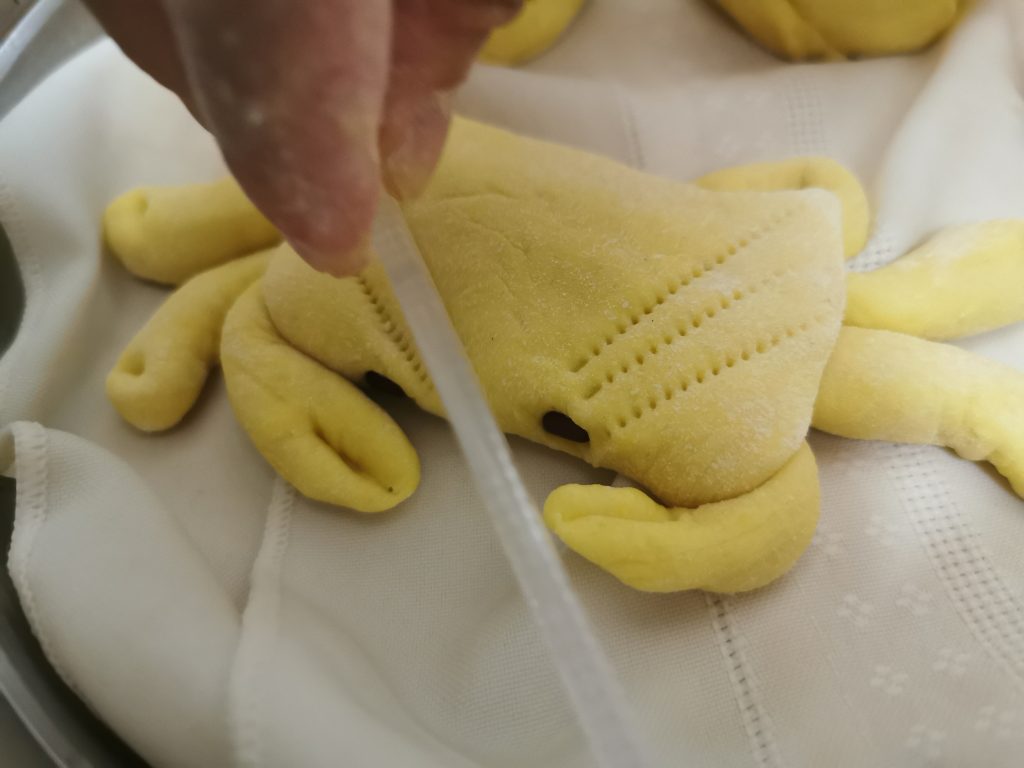
Mantou Porcupine
- Probably the most heartwarming of mantou designs, mantou porcupines requires just one piece of dough. Mold it into a teardrop shape with your hand and flatten one side slightly so the porcupine appears to be crawling on the ground.
- Take a pair of scissors and cut and lift small pieces of dough all over the rounded side, forming the porcupine’s prickly back. Make sure to maintain the scissors in an upright position so that with every cut, a triangular spike is created. Don’t cut too deep into the dough or else the spikes will be too large.
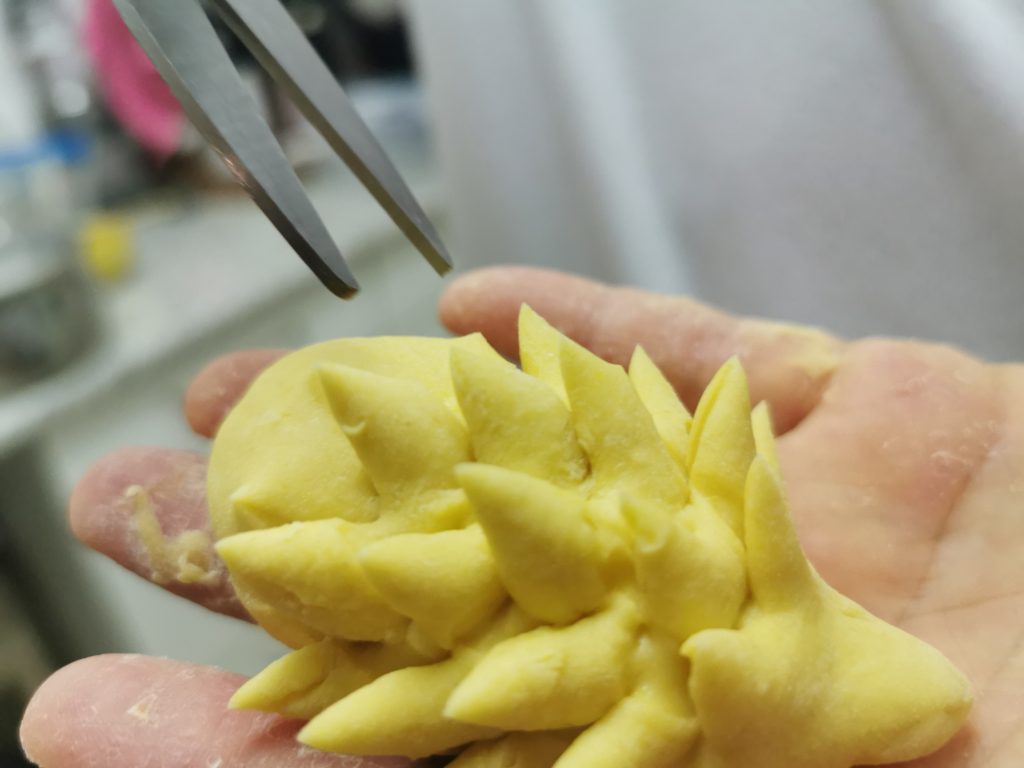
- Take two beans and insert them into the pointed area of the teardrop structure, serving as the animal’s eyes.
Qinglan Du is a 16-year-old student from Beijing City International School. She’s originally from Beijing but is currently living in Jerusalem with her mother due to the COVID-19 pandemic. Aside from her passion for writing, she enjoys singing, spending time with friends and family, and experiencing new cultures.
KEEP READING: A Step-By-Step to Homemade Laozao Sweet Fermented Rice
Photos: Qinglan Du, food52

